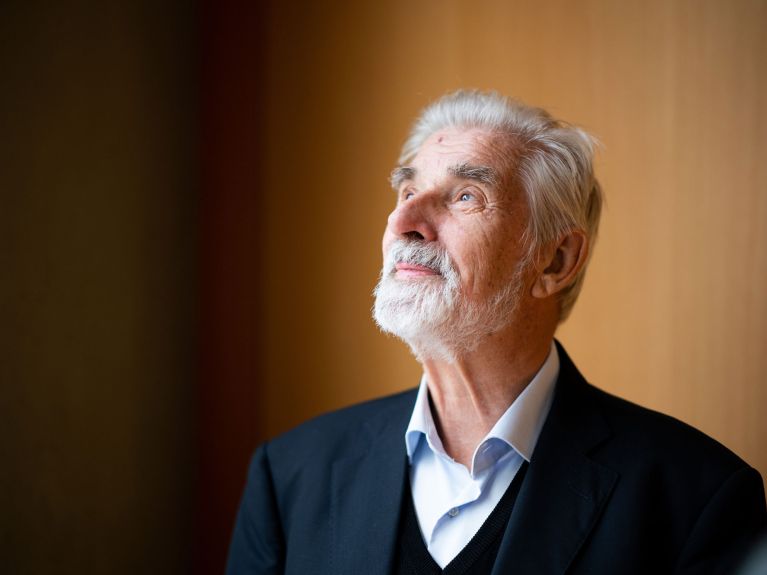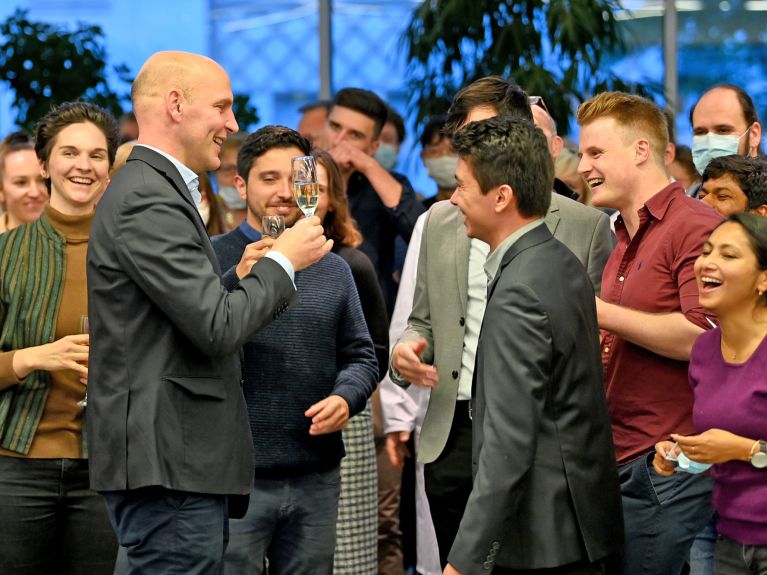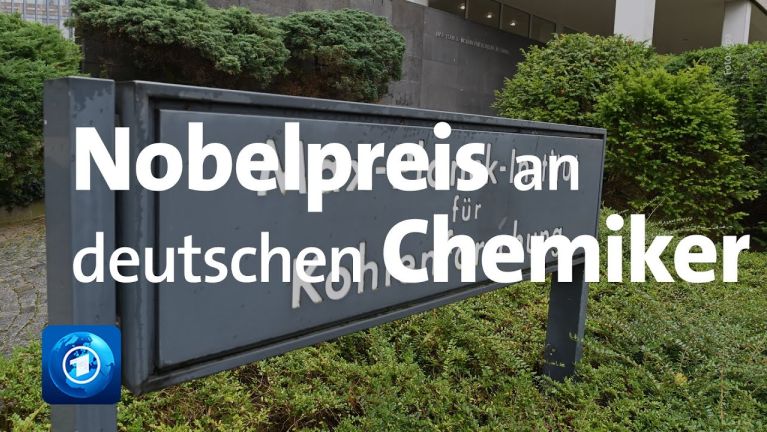Pioneers of science
Nobel Prize Winners in Physics and Chemistry 2021: portrait of the German researchers Klaus Hasselmann and Benjamin List.

2021 Physics Nobel Prize: Klaus Hasselmann, visionary of climate research
Weather is a chaotic system. This applies not only to extreme events such as storms or heavy rain but also fundamentally. The German researcher Klaus Hasselmann analysed this chaos decades ago and thus contributed significantly to our understanding of climate catastrophes.
Along with Syukuro Manabe of the USA and Giorgio Parisi of Italy, Hasselmann received the 2021 Nobel Prize in Physics for work on chaotic and seemingly random phenomena. Born in Hamburg and for many years director of the Max Planck Institute for Meteorology in his hometown, he showed in the 1970s that climate models can be reliable even when the weather is extremely changeable. The Royal Swedish Academy of Sciences illustrated Hasselmann’s achievements with a simile: as a dog on a leash remains in relation to the person who walks with it no matter how much the dogs zigzags, so too the weather remains in relation to the climate in spite of all fluctuations. Hasselmann’s accomplishment was to develop a stochastic climate model that translates the fluctuations into reliable statements.

Hasselmann also demonstrated the human influence on climate and warned as early as 1988 that “in 30 to 100 years, depending on how much fossil fuel we consume, we’ll be facing very significant climate change. Climatic zones will shift, precipitation be distributed differently. Then we’ll no longer be able to talk about random results.”
Dieses YouTube-Video kann in einem neuen Tab abgespielt werden
YouTube öffnenThird party content
We use YouTube to embed content that may collect data about your activity. Please review the details and accept the service to see this content.
Open consent form2021 Nobel Prize in Chemistry: Benjamin List, builder of molecules
It all comes down to catalysts: in reducing pollutants in cars but also especially in chemical research. For a long time, experts assumed there were only two types of catalysts, metals and enzymes. Then came the German organic chemist Benjamin List and the Scottish organic chemist David MacMillan and, independently of one another, they achieved a sensational breakthrough in 2000.
Like MacMillan, List was only in his early thirties when he made the big discovery. At the American Scripps Research Institute in La Jolla, List found that the amino acid proline is an exceptionally efficient catalyst and can accelerate chemical reactions prodigiously. The molecule is straightforward and inexpensive to work with, and makes ecological sense. List and MacMillan became the fathers of "organocatalysis". This field has significantly advanced pharmaceutical research and made chemistry more environmentally friendly.

List returned to Germany in 2003 and has been working at the Max Planck Institute for Coal Research ever since; in 2004 he was also appointed an honorary professor at the University of Cologne. Together with his research team, he continues to advance the development of the “perfect chemical reaction”, which works without producing toxic solvents and extreme temperatures.
Dieses YouTube-Video kann in einem neuen Tab abgespielt werden
YouTube öffnenThird party content
We use YouTube to embed content that may collect data about your activity. Please review the details and accept the service to see this content.
Open consent form



